https://learn.framevr.io/post/socrates-gets-killed-in-the-metaverse
my annotations here:
https://hyp.is/go?url=https%3A%2F%2Flearn.framevr.io%2Fpost%2Fsocrates-gets-killed-in-the-metaverse%3Futm_medium%3Dsocial%26utm_source%3Dlinkedin&group=__world__
some of the implications of people spending significantly more time in immersive 3D environments that provide alternative “realities” to the physical world.
Launching the world’s first all-in-one medical and welfare VR platform JOLLYGOOD+
Providing to medical and welfare facilities for training medical professionals, for mental care and employment support of patients
https://www.prnewswire.com/news-releases/launching-the-worlds-first-all-in-one-medical-and-welfare-vr-platform-jollygood-301442913.html
For more details and applications for JOLLYGOOD+: https://jollygoodplus.com/
About Jolly Good Inc. (https://jollygood.co.jp/)
Emergent Technology beyond the Pandemic – Preparing for the Future
My annotations here:
https://hyp.is/go?url=https%3A%2F%2Freadylearner.one%2Femergent-technology-beyond-the-pandemic-preparing-for-the-future%2F&group=__world__
So while we know that there are incredible applications for emergent technologies such as VR/AR, the goal for organizations isn’t to look to implement these types of solutions immediately while in the midst of a pandemic, adding layers of training and cost concerns to the already existing uncertainty. Rather, an approach that involves short and long term planning as well as data collection to inform decision making is a much more prudent approach.
“VR Learn: Virtual Reality in Learning”
- Learners are able to learn more in less time. They are engaged.
- Learners have a physical and emotional response that is based on empathy.
- Learners develop mental muscle memory on new tasks and new procedures.
- Learners show greater retention rates.
- Learners are able to fail forward without real-world consequences.
- Learners can do things in VR/AR that they can’t do in real-life.
Augmented Reality (AR): Technology Trends
- Metaverse
- Mobile AR
- Contact lenses
- WebAR
- Artificial intelligence (AI)
- 5G
- Cloud
https://www.iste.org/explore/tools-devices-and-apps/create-ar-using-these-5-apps
ARize Free for up to 10 experiences
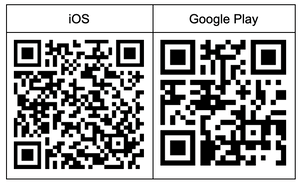
Arloopa Free for up to 10 experiences
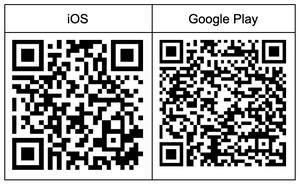
Assemblr Free with the QR code
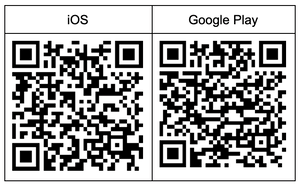
EyeJack Creator Free
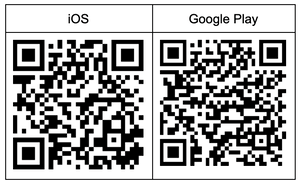
Halo AR
WebAR
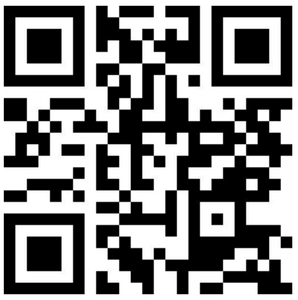
Higher ed’s essential role in upskilling and reskilling
There is a greater need than ever before to provide increasingly specialized disciplinary knowledge, coupled with advanced workforce skills, without diminishing the role and importance of a broad-based education that ensures critical thinking and analytical reasoning along with social and communications skills and understanding. Simultaneously, in the context of millions of employees with some or no college and no degree, there is a need for academia to play an increased role in facilitating the continued employability of people already in the workforce through short-term credentials and certifications, enabling an updating of their knowledge and skills base.
Coskilling: The integration of knowledge (broad based and specialized) and relevant job skills into degree programs so that both facets are mastered simultaneously requires that institutions of higher ed focus on four key aspects simultaneously: (a) Increase opportunities for students to gain a well-rounded education intertwined with professional skills; (b) Respond at a significantly faster pace to the needs of the job market and be better aligned with advances in technology and information; (c) Create more flexible and personalized pathways for students to convert knowledge and learning to skills that result in earnings capacity; and (d) Change the “stove pipe” structure between academe and the workplace to enable greater alignment between the curriculum and new areas of workforce need.
Coding and “skills-building” bootcamps, enhanced career development services, and credentials and certificates are increasingly being offered by community colleges and universities either by themselves, or in conjunction with, external entities. Some are forming partnerships with corporate giants such as Boeing, Amazon Web Services, Cisco, and Google,
Upskilling
a greater need for employees to be “upskilled–mastering new skills, developing an understanding of a higher level of use of technology, and operating in a highly data-driven world. While a portion of upskilling can be undertaken “on the job,” institutions of higher education have the responsibility and opportunity to develop new certificates and courses, both self-standing and stackable, towards post-baccalaureate degrees that will build on existing levels of knowledge and skill sets.
Virtual reality training at Lakeland immerses surgical technology students into 3-D operating room
PeriopSim and PeriopSimVR use lifelike imagery and gaming technology to immerse students in a 3-D world.
The Still-Evolving Future of University Credentials
https://www.edsurge.com/news/2021-12-21-the-still-evolving-future-of-university-credentials
Sean Gallagher is founder and executive director of Northeastern University’s Center for the Future of Higher Education and Talent Strategy, and executive professor of educational policy.
The growth of educational platform companies such as Coursera and 2U is being driven in part by a surge in demand for certificate programs and “alternative credential” offerings. The number of open badges awarded nearly doubled from 24 million in 2018 to 43 million in 2020. And major companies and industry groups are increasingly getting into the credentialing game, exemplified by firms such as IBM and Google. Strada Education Network’s consumer polling has shown that 40 percent of working-age adults have earned some type of non-degree credential—and that non-degree credentials are at the top of the list for adults seeking education or retraining.
plenty of confusion or ignorance in the marketplace about the basic differences between “certificates” and “certifications.”
skills-based hiring
badging, embedding certificates into degrees and the idea of offering small credentials on the way to a larger one are emerging as key trends
The future will likely see a continued de-emphasis on merely requiring that prospective employees hold college degrees.
the needs of the job market are changing faster than ever, meaning a greater need for upskilling
a new national survey of C-suite executives that we recently conducted, 70 percent said that U.S. workers should be worried about their skills becoming outdated over the next few years.
Innovations such as stackable non-degree credentials as an on-ramp and low-cost MOOC-based degrees from top universities are likely to only grow access to post-baccalaureate education. The number of MOOC-based degrees is approaching 100
Online education services companies – or “OPMs” as many refer to them, have continued to play a major role in the scaling of online higher education, within, and now increasingly beyond the U.S.
the Lumina-sponsored Connecting Credentials campaign; the launch of the Non-Degree Credentials Research Network; the development of UPCEA’s Hallmarks of Excellence in Credential Innovation,




